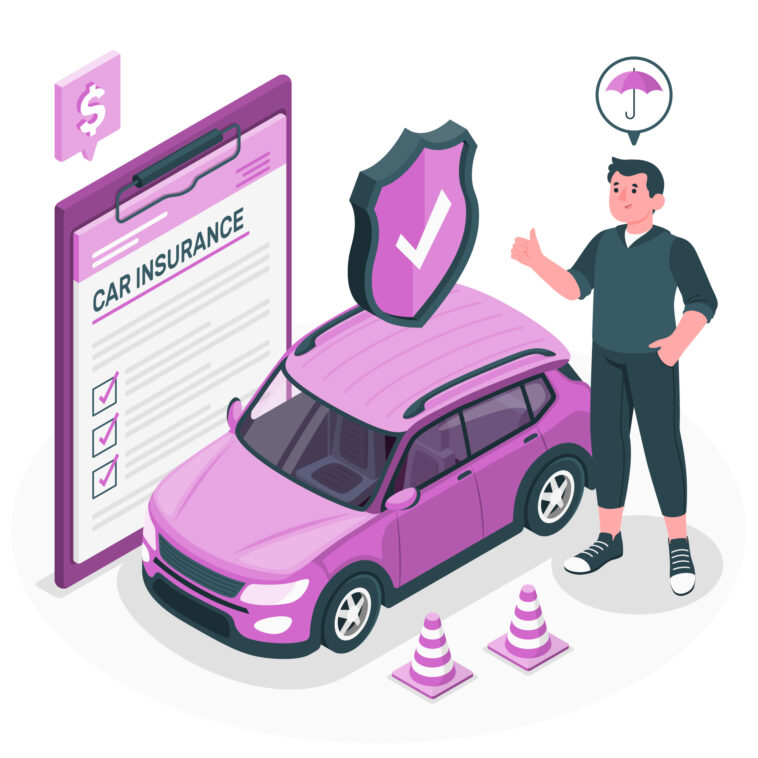When it comes to car insurance, most people see it as just another expense, something to check off the to-do list and forget about. But trust me, it’s so much more than that. Finding the best car insurance isn’t just about saving money, although that’s a big part of it. It’s about protecting yourself, your loved ones, and your hard-earned assets. Let’s dive into why getting the best car insurance should be a priority for every car owner, and how you can make sure you’re getting the best deal possible.
Understanding the Basics: What Is Car Insurance?
Before we get into the nitty-gritty of finding the best car insurance, let’s make sure we’re all on the same page about what car insurance actually is. Car insurance is a contract between you and an insurance company. You pay a premium, and in return, the company promises to cover certain costs associated with accidents, theft, or other types of vehicle damage. Depending on your policy, it can also cover medical expenses, legal fees, and even damages to other people’s property.
- Liability Coverage: This is the most basic form of car insurance and is required in most states. It covers the cost of damage you cause to other people or their property in an accident.
- Collision Coverage: This covers the cost of repairing or replacing your vehicle if it’s damaged in a collision, regardless of who’s at fault.
- Comprehensive Coverage: This type of coverage kicks in if your car is damaged by something other than a collision, like theft, fire, or natural disasters.
- Personal Injury Protection (PIP): PIP covers medical expenses for you and your passengers after an accident, regardless of who’s at fault.
- Uninsured/Underinsured Motorist Coverage: This protects you if you’re in an accident with someone who doesn’t have enough insurance to cover the damages.
Understanding these different types of coverage is the first step to finding the best car insurance policy for your needs. But the journey doesn’t stop there.
How to Find the Best Car Insurance: Tips and Tricks
Now that we’ve covered the basics, let’s talk about how to actually find the best car insurance. It’s not just about choosing the cheapest option—it’s about getting the right coverage at the best price. Here are some tips to help you navigate the process.
1. Compare Multiple Quotes
One of the best ways to ensure you’re getting the best car insurance is to shop around. Don’t just settle for the first quote you get—compare at least three or four different policies from different providers. Use online comparison tools, or even better, work with an independent insurance agent who can do the legwork for you.
2. Look Beyond the Price
While it’s tempting to go for the lowest premium, remember that the cheapest option isn’t always the best. Look at the coverage limits, deductibles, and the specific situations covered by each policy. Sometimes spending a little more can save you a lot in the long run.
3. Consider Bundling Your Policies
If you have other types of insurance, like home or renters insurance, consider bundling them with your car insurance. Many companies offer significant discounts when you buy multiple policies from them.
4. Check for Discounts
Insurance companies offer a variety of discounts that can help lower your premium. Some common discounts include safe driver discounts, good student discounts, and discounts for having safety features like anti-theft devices or airbags. Don’t be afraid to ask about all the discounts available.
5. Review Your Coverage Annually
Your insurance needs can change over time, so it’s a good idea to review your coverage at least once a year. Life events like getting married, moving, or buying a new car can all impact your insurance needs. Make sure your policy is still the best fit for your current situation.
The Top Car Insurance Companies of 2024
While there are many car insurance companies out there, a few stand out from the rest when it comes to customer satisfaction, coverage options, and affordability. Here’s a quick look at some of the best car insurance companies in 2024:
- Geico: Known for its low rates and extensive discount options, Geico is a great choice for budget-conscious drivers.
- State Farm: With a large network of agents and a reputation for excellent customer service, State Farm is a top pick for those who prefer a more personalized experience.
- Progressive: Progressive offers a wide range of coverage options and is particularly good for high-risk drivers.
- Allstate: Allstate is known for its comprehensive coverage options and unique features like accident forgiveness.
- USAA: If you’re a member of the military or have a family member who is, USAA offers some of the best rates and customer service in the industry.
These companies consistently rank high in customer satisfaction and offer a variety of coverage options to fit different needs and budgets. However, it’s important to do your own research and choose the one that’s right for you.
How Your Driving Habits Affect Your Car Insurance
Your driving habits play a big role in determining your car insurance premium. Insurance companies look at a variety of factors when setting your rate, including:
- Driving Record: If you have a history of accidents or traffic violations, you’re likely to pay more for insurance.
- Mileage: The more you drive, the higher your risk of getting into an accident, which can increase your premium.
- Location: If you live in an area with high rates of accidents or car theft, you’ll likely pay more for insurance.
- Type of Vehicle: The make, model, and age of your vehicle can also affect your insurance rates. Sports cars, for example, are typically more expensive to insure than sedans.
Understanding how these factors influence your premium can help you make smarter decisions about your car insurance. For example, if you don’t drive much, you might qualify for a low-mileage discount. Or, if you’re considering buying a new car, you might want to choose one that’s less expensive to insure.
What to Do After an Accident: Steps to Take with Your Car Insurance
Even with the best car insurance, getting into an accident can be a stressful experience. Knowing what to do after an accident can make the claims process smoother and help ensure you get the compensation you deserve. Here’s what you should do:
- Stay Calm and Check for Injuries: Your first priority should be making sure everyone is safe. Check for injuries and call 911 if necessary.
- Move to a Safe Location: If it’s safe to do so, move your vehicle out of traffic to prevent further accidents.
- Exchange Information: Get the names, contact information, and insurance details of all parties involved. Also, take note of the make and model of the other vehicles and take photos of the scene.
- File a Police Report: In many cases, it’s a good idea to file a police report, even if the accident is minor. This can help with the claims process later on.
- Contact Your Insurance Company: Report the accident to your insurance company as soon as possible. Provide them with all the details and any documentation they request.
Being prepared and knowing what steps to take after an accident can make a difficult situation a little easier to handle.
Conclusion: The Road to Finding the Best Car Insurance
Finding the best car insurance is about more than just getting the lowest price—it’s about making sure you and your loved ones are protected. By understanding the different types of coverage, comparing quotes, and considering your own needs and driving habits, you can find a policy that offers the best protection at the best price. Remember, your car insurance isn’t just another bill; it’s a vital safety net that can save you from financial disaster in the event of an accident.
So take the time to review your options, ask questions, and make an informed decision. Your future self will thank you.
FAQs about Car Insurance
What factors affect car insurance premiums?
Your car insurance premium is influenced by several factors, including your driving record, age, location, the type of vehicle you drive, and how much you drive. Insurance companies also consider your credit score and whether you’ve had any recent claims.



